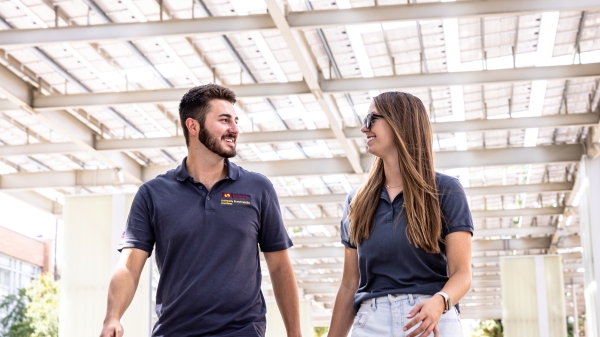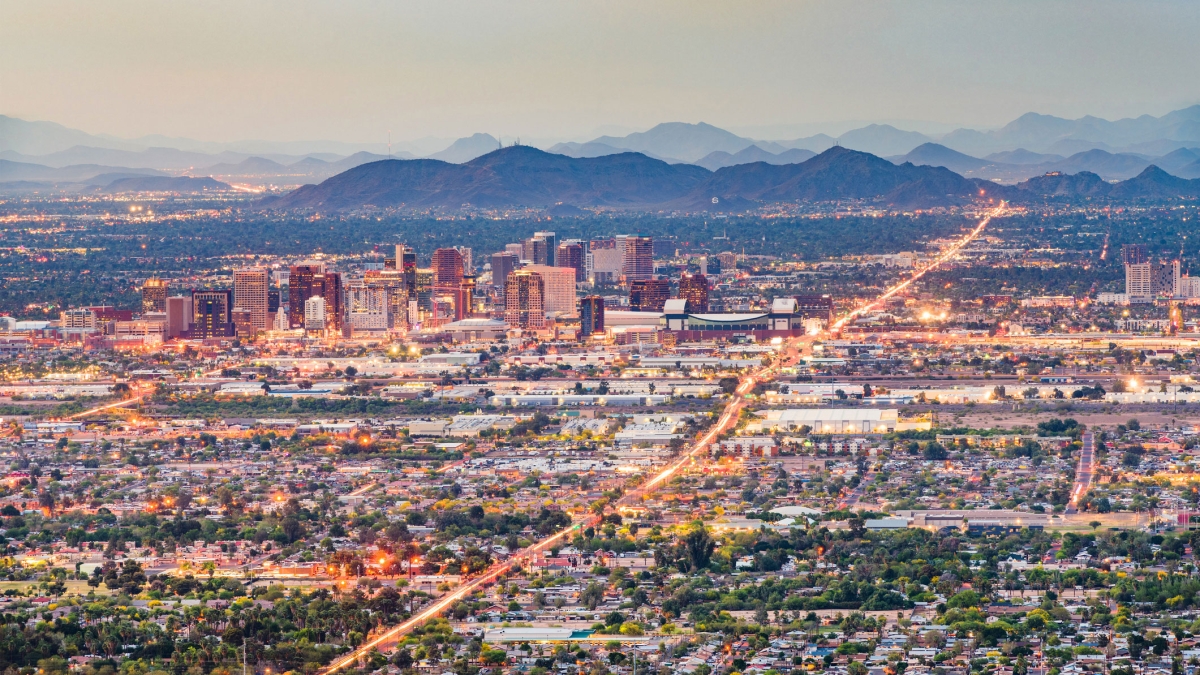Arizona State University today convened the inaugural meeting of the Council of Resilience Leaders, its latest effort to advance resilience-promoting strategies as communities in Arizona and around the world search for answers to complex issues from climate change to economic, health and social inequities.
The newly formed council comprises 14 influential and diverse leaders from the public, private, nonprofit and advocacy sectors. The group will work together to support ASU’s Knowledge Exchange for Resilience in its mission to leverage the university's intellectual resources and partners to build Maricopa County’s capacity to withstand future shocks and stresses.
“Arizona is experiencing rapid changes in the demand for health care and education, economic expansion, and social and environmental evolution, and as 2020 showed us, we can’t wait around for answers,” ASU President Michael Crow said. “Now more than ever, we need to work together as leaders to address the multifaceted challenges confronting our state and find better ways to ensure the overall well-being and prosperity of the communities we serve.”
The city of Phoenix, Maricopa Association of Governments, Salt River Project, Arizona Public Service, AARP, Greater Phoenix Leadership, Chicanos Por La Causa, Black Chamber of Arizona, Wildfire, Intertribal Council of Arizona, State of Black Arizona, Children’s Action Alliance, The Arizona Republic and the Hispanic Chamber of Commerce were among the organizations represented at today’s gathering at Mirabella at ASU in downtown Tempe.
The council is one of several resilience-building initiatives supporting the Knowledge Exchange for Resilience, which launched in 2018 with a $15 million grant from the Virginia G. Piper Charitable Trust. Other recent endeavors include the Resilience Fellows, who conduct individual and collaborative research on resilience themes, and the Recognition of Resilience, which honors local entities for their innovative and inspirational efforts to strengthen community resilience.
Additional information about the Knowledge Exchange for Resilience and the council’s membership is available at resilience.asu.edu/council-of-resilience-leaders.
ASU’s continued work to strengthen local resilience is another example of its ongoing, institutional commitment to take fundamental responsibility for the economic, social, cultural and overall health of the communities it serves.
Top photo by Sean Pavone/iStock
More Environment and sustainability

Charles Redman, founder of the School of Sustainability, faces a new adventure: Retirement
At the retirement celebration for Charles Redman on Oct. 22, two messages persisted: Redman’s contributions to Arizona State University helped to shape the interdisciplinary efforts we now find…

10 climate insights to guide our future
A group of globally renowned social, natural and climate scientists has once again convened to offer their newest annual synthesis report, “10 New Insights in Climate Science.”The report, published…

The future is green: Job demand translates to high employability for ASU sustainability grads
A 2023 report by Forbes on the state of green jobs confirmed what Arizona State University has been trumpeting for years: Sustainability will play a large part in the new economy.The report suggests…
